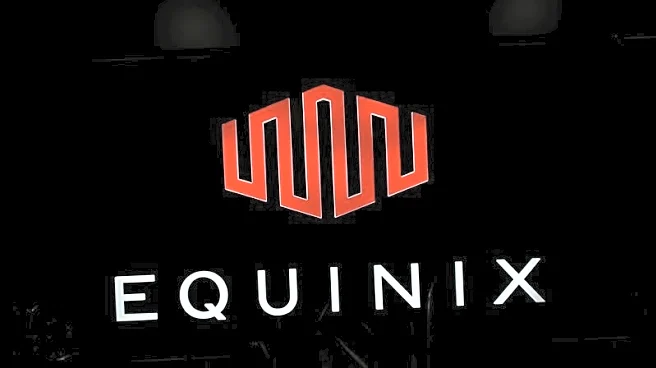What's Happening?
The SHRM India Annual Conference and Expo 2025, held in New Delhi, focused on the future of work, emphasizing flexible leadership and the integration of AI in employee experiences. The event brought together
global HR leaders, CHROs, and business influencers to discuss the reinvention of leadership, talent, culture, and technology in creating more human-centric and resilient workplaces. Keynote speakers Jessica Jensen and Kirthiga Reddy highlighted the need for flexible leadership and the importance of human connection in navigating change. The conference also featured discussions on AI's role in personalized employee recognition and well-being, and the launch of SHRM India's report on executive coaching, which provides insights into coaching adoption and leadership expectations.
Why It's Important?
The discussions at the SHRM India Conference are significant as they address the evolving nature of workplaces in the face of technological advancements and changing leadership paradigms. The emphasis on AI and flexible leadership models reflects a shift towards more adaptive and human-centric work environments. This transformation is crucial for organizations aiming to remain competitive and resilient in a rapidly changing global landscape. The insights shared at the conference can guide U.S. companies in adopting similar strategies to enhance employee engagement, recognition, and overall workplace culture, potentially leading to increased productivity and innovation.
What's Next?
Following the conference, organizations may begin to implement the strategies discussed, such as integrating AI into employee recognition programs and adopting flexible leadership models. HR leaders and business influencers are likely to explore new ways to balance automation with empathy and design inclusive talent ecosystems. The insights from the executive coaching report may lead to increased adoption of coaching practices to strengthen succession planning and organizational resilience. As these changes take place, companies will need to continuously adapt to ensure their workplaces remain future-ready and aligned with evolving employee expectations.
Beyond the Headlines
The conference highlighted the ethical considerations of AI integration in workplaces, emphasizing the need for balancing technological advancements with human-centric values. As organizations increasingly rely on AI, they must address potential biases and ensure that technology enhances rather than detracts from employee experiences. The focus on leadership without a playbook suggests a cultural shift towards more dynamic and responsive management styles, which could lead to long-term changes in organizational structures and employee relations. These developments may influence broader societal attitudes towards work and leadership.











